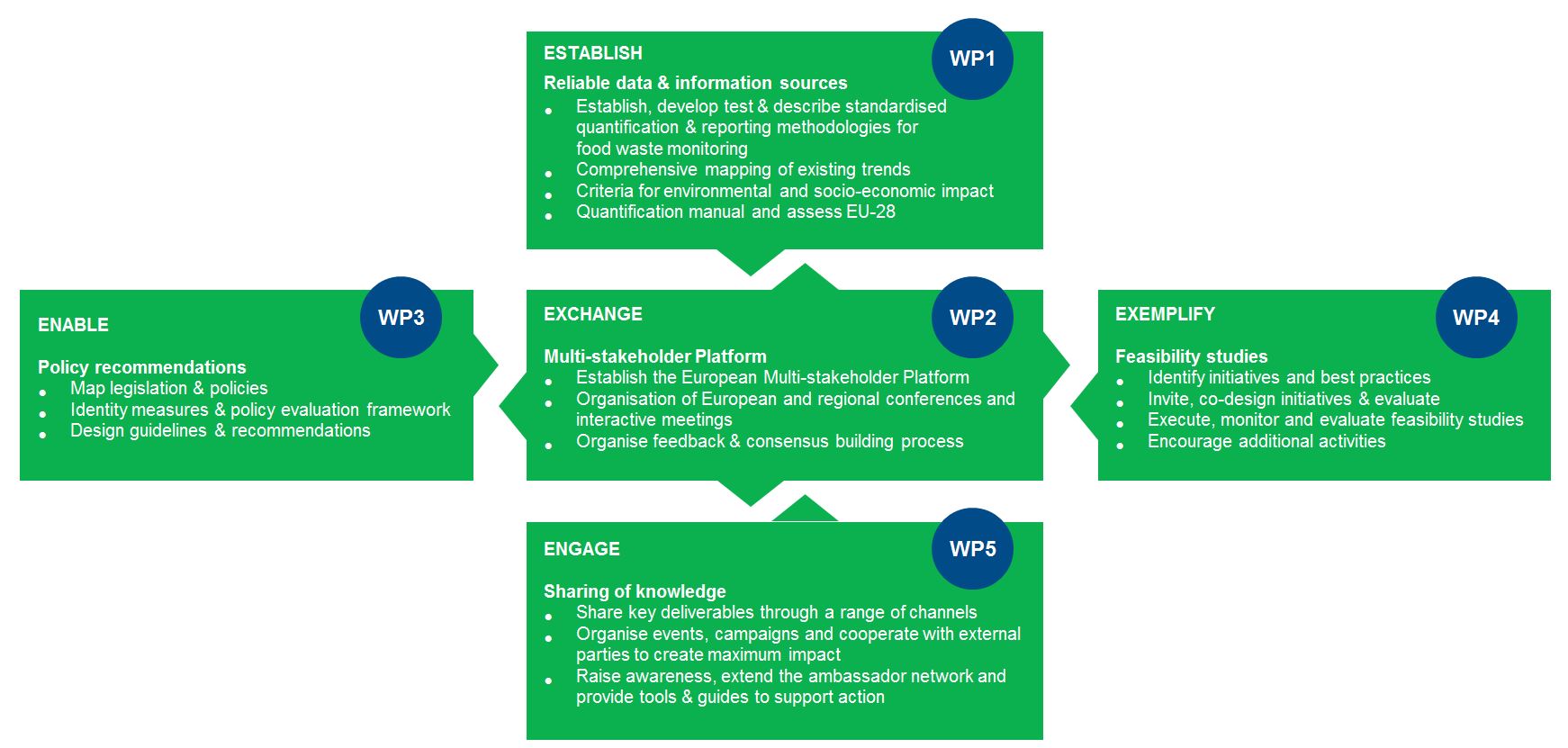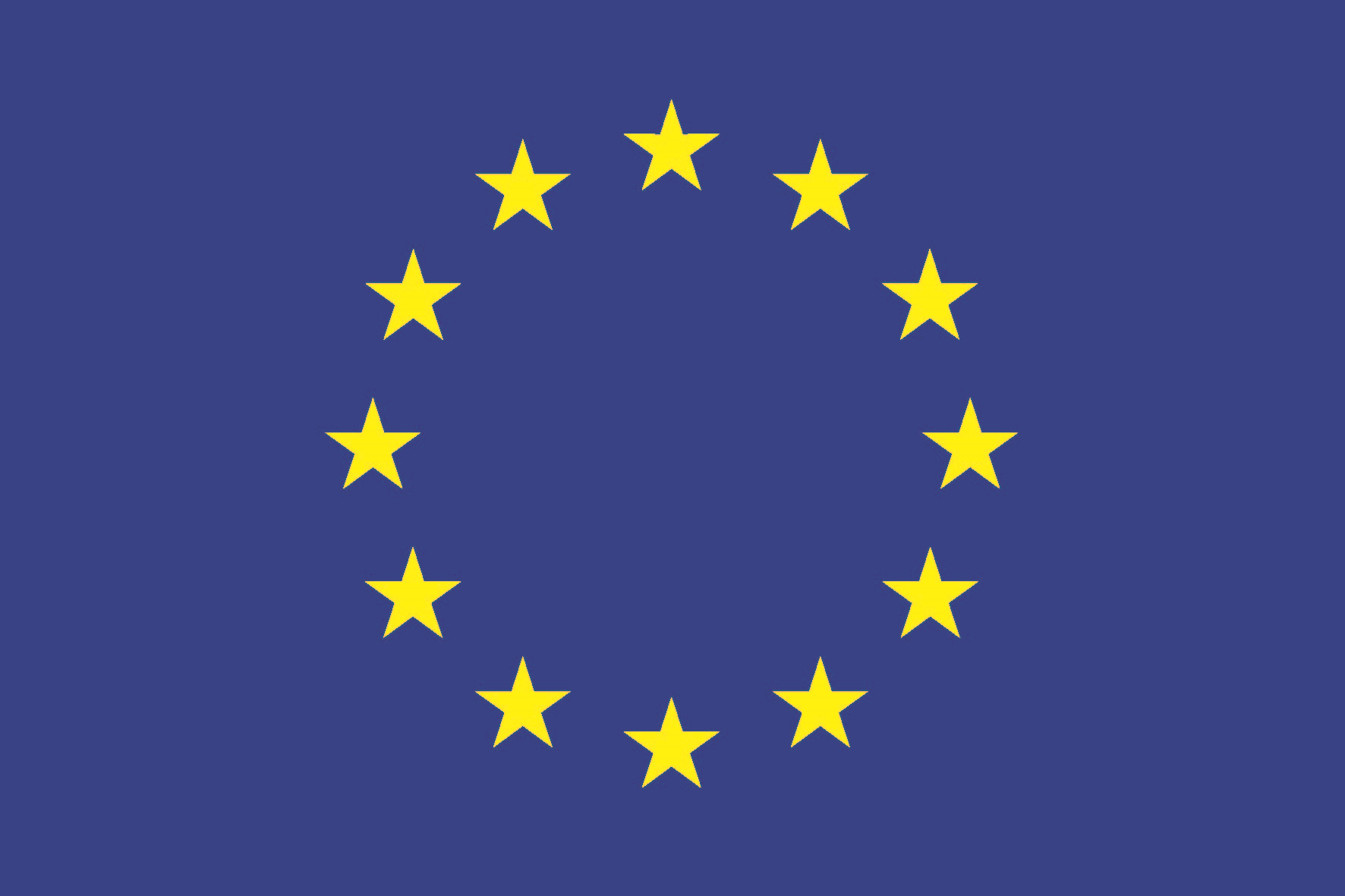About FUSIONS
FUSIONS (Food Use for Social Innovation by Optimising Waste Prevention Strategies) is a project about working towards a more resource efficient Europe by significantly reducing food waste. The project runs for 4 years, from August 2012 to July 2016. It is funded by the European Commission Framework Programme 7.
FUSIONS has 21 project partners from 13 countries, bringing together universities, knowledge institutes, consumer organisations and businesses. In addition, a number of organisations from a variety of sectors have pledged their support to FUSIONS.
The project will establish a European Multi-Stakeholder Platform to generate a shared vision and strategy to prevent food loss and waste across the whole supply chain through social innovation. Already more than 200 leading European organisations have pledged their support.
The project will contribute towards:
- the harmonisation of food waste monitoring;
- improved understanding of the extent to which social innovation can reduce food waste;
- and the development of guidelines for a common Food Waste policy for EU-27.
Through delivery of the key objectives, FUSIONS will support:
- the delivery of the Roadmap towards a Resource Efficient Europe;
- the European Commission’s target of a 50% reduction of food waste;
- and a 20% reduction in the food chain’s resource inputs by 2020.
To find out more about the progress made by the FUSIONS project, please refer to the Work Structure tab.
Work Structure
Overview of Work Packages (WP)
FUSIONS deliverables are devided in five work packages between the project team as follows:
- WP 1 Reliable data and information sources trends and assessment criteria
- WP 2 FUSIONS Multi-stakeholder Platform
- WP 3 Recommendations for a Common EU Policy
- WP 4 Feasibility Studies
- WP 5 Dissemination
WP1
Objectives:
Assess food waste quantities and trends in food waste prevention and reduction by:
- Establishing a standard approach on system boundaries and definitions of food waste
- Developing, testing and describing standardised reporting methodologies to improve quantification of food waste
- Comprehensively mapping existing trends in relation to food waste prevention and reduction
- Developing criteria for the assessment of socio-economic & environmental impacts of food waste and providing baseline estimates
Progress to date:
- Review of EUROSTAT's methodology for reporting food waste
- Documentation of key methodologies for food waste reporting
- Recommendations on standard approaches to be used to estimate food waste levels across the different stages of the food chain
- Developed of a definitional framework for food waste
- Identified food waste drivers and opportunities to reduce these
Ongoing work:
- Establishing a Food Waste Quantification Manual enabling assessment of food waste amounts in EU28
- Developing criteria for the assessment of socio-economic & environmental impacts of food waste and providing baseline estimates of the current social & environmental impact in EU28
- Assessing current EU28 + Norway food waste arisings
WP2
Objectives:
- Establish a European FUSIONS Multi-stakeholder Platform with an appropriate tiered platform management structure, that enables it to last beyond the project timeframe.
- Organise a feedback and consensus building process to exchange ideas and suggestions to reduce food waste, and receive input from all other WPs and maximise output to the other WPs. This will incorporate supporting and facilitating the growth of existing platforms, to encourage the establishment of new regional infrastructure.
Progress to date:
- Twelve regional platform meetings and two European platform meetings were organised in 2013-2015 :
- Central Europe: 16 May 2013 in Hohenheim, Germany
- Southern Europe: 20 May 2013 in Padua, Italy
- Scandinavia: 23 May 2013 in Helsinki, Finland
- North West Europe: 7 June 2013 in Paris, France
- European Platform meeting: 17-18 October 2013 in Amsterdam, the Netherlands
- Central Europe: 9 May 2014 in Dusseldorf, Germany
- Southern Europe: 14 March 2014 in Athens, Greece
- Scandinavia: 6 May 2014 in Stockholm, Sweden
- North West Europe: 28 May 2014 in London, UK
- European Platform meeting: 30-31 October 2014 in Brussels, Belgium
- Scandinavia: 22 April 2015 in Olso, Norway
- Southern Europe: 22 May 2015, Bologna, Italy
- North West Europe: 26 May 2015, Paris, France
- Central Europe: 3 June 2015, Budapest, Hungary
For more information on these meetings, please refer to the Platform meetings section.
FUSIONS Regional Platform Meetings December 2015- February 2016
The 4th Regional Platform meetings will take place between December 2015 and February 2016 in Copenhagen, Thessaloniki, NWE and Central Europe. Dates and venues to be published soon.
The Final European Platform Meeting will be held in May 2016 in Brussels. More information will follow. Stay up to date via our Newsletter.
WP3
Objectives:
- Comprehensively mapping and analysing the current legislation and policies which impact the creation of food waste in the EU/EEA countries and evaluating the main trends of food waste generation
- Identifying sound measures and best practice for an improved legislation to reduce food waste through social innovation
- Establishing indicators and criteria to develop a specific evaluation framework for food waste policies
- Designing guidelines and recommendations for a European Common Policy targeting prevention and reduction of food waste through socially innovative measures
Progress to date:
- A social innovation camp was organised in Bologna on April 8 2014
- A report on how to stimulate social innovation through policy measures
Ongoing work:
- Legislation and policies impacting on food waste in Europe and scenarios of current trends
- Review of policy options addressing food waste through social innovation
- Indicators and criteria for a food waste policy Evaluation Framework
- Guidelines for a European Common Policy enhancing food waste prevention and reduction through social innovation
WP4
Objectives:
- To identify existing social innovation solutions that reduce waste
- To test new social innovation ideas
- To evaluate their impact on reducing waste
Progress to date:
- A report on how can social innovation help reduce food waste
- An inventory of selected socially innovative food waste prevention and food waste management activities has been developed and updated
- 7 feasibility studies have been launched at the second Regional Platform Meeting
Ongoing work:
- Activity reports of the 7 feasibility studies
WP5
Objectives:
- Disseminating key outcomes and deliverables of the project among relevant food chain stakeholders, policy makers and the wider public
- Raising awareness among food chain stakeholders, policy makers and the wider public on the economic, environmental and social impact of food waste, and opportunities for its prevention through social innovation
Progress to date:
- A project website was created
- Social media tools were created: Facebook, Twitter and Linkedin.
- Seven newsletters have been distributed to ~200 members and subscribers
- FUSIONS partners have participated and presented at over 100 events and generated diverse media coverage
- FUSIONS awareness raising events were organised
Project Partners
The 21 FUSIONS project partners shown in the list below represent 13 countries.
The FUSIONS team is composed of consultants, experts and researchers in a variety of areas linked to food waste. A brief profile on each organisation and the main project team members can be found by clicking on the logo.
|
|
|
|
|
|
|
Development Agency of Eastern Thessaloniki’s Local Authorities ( |
|
Newsletter Archives
2016
- EU FUSIONS Newsletter April 2016
- EU FUSIONS Newsletter March 2016
- EU FUSIONS Newsletter February 2016
2015
- EU FUSIONS Newsletter December 2015
- EU FUSIONS Newsletter December 2015 - RPM Registration
- EU FUSIONS Newsletter November 2015 - Country Reports Consultation Reminder
- EU FUSIONS Newsletter November 2015 - Country Reports Consultation
- EU FUSIONS Newsletter October 2015
- EU FUSIONS Newsletter September 2015
- EU FUSIONS Newsletter August 2015
- EU FUSIONS Newsletter July 2015
- EU FUSIONS Newsletter May 2015
- EU FUSIONS Newsletter April 2015
2014
- EU FUSIONS Newsletter December 2014
- EU FUSIONS Newsletter September 2014
- EU FUSIONS Newsletter May 2014
- EU FUSIONS Newsletter January 2014
2013


 Sweden)
Sweden)  Copyright © 2016 | EU FUSIONS |
Copyright © 2016 | EU FUSIONS |